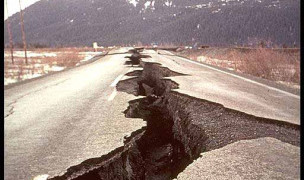 7 Terms
7 TermsHome > Industry/Domain > Geology; Mining > Minerals
Minerals
Naturally occurring substance that is solid and stable at room temperature, representable by a chemical formula, usually abiogenic, and has an ordered atomic structure. It is different from a rock, which can be an aggregate of minerals or non-minerals, and does not have a specific chemical composition. The general definition of a mineral encompasses the following criteria: 1 - Naturally occurring 2 - Stable at room temperature 3 - Represented by a chemical formula 4 - Usually abiogenic 5 - Ordered atomic arrangement
Contributors in Minerals
Minerals
nickel(II) oxide
Geology; Minerals
Nickel(II) oxide is the chemical compound with the formula NiO. It is notable as being the only well characterized oxide of nickel (although nickel(III) oxide, Ni 2 O 3 and NiO 2 have been claimed ...
chloritoid
Geology; Minerals
Chloritoid is a silicate mineral of metamorphic origin. It is an iron magnesium manganese alumino-silicate hydroxide with formula: (Fe,Mg,Mn) 2 Al 4 Si 2 O 10 (OH) 4 . It occurs as greenish grey to ...
aurostibite
Geology; Minerals
Aurostibite is an isometric gold antimonide mineral which is a member of the pyrite group. Aurostibite was discovered in 1952 and can be found in hydrothermal gold-quartz veins, in sulfur-deficient ...
phosgenite
Geology; Minerals
Phosgenite is a rare mineral consisting of lead chlorocarbonate, (PbCl) 2 CO 3 . The tetragonal crystals are prismatic or tabular in habit: they are usually colorless and transparent, and have a ...
chrysotile
Geology; Minerals
Chrysotile or white asbestos is the most commonly encountered form of asbestos, accounting for approximately 95% of the asbestos in place in the United States and a similar proportion in other ...


